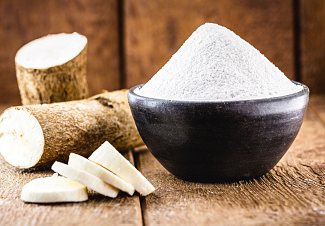Is Cassava Flour High In Oxalates
Some cassava flour will be high in oxalates and others may not as it depends on the brand. Regardless of the brand, many should be tolerable in lower portions but it’s best to check the specific brand you intend to buy on whether or not it’s high in oxalates.
What Are Oxalates?
Oxalates come from oxalic acid, an organic compound found in a lot of plants we consume daily. The oxalic acid binds to minerals making these oxalates that have a variety of effects on our bodies.
Oxalates aren’t just created in plants though as they can also be created by your body. The reason it’s important to know if you’re introducing too many oxalates into your body is because they can bind to other minerals in your body causing issues such as kidney stones and other issues to those sensitive to the compound.
What Is Considered High Oxalate?
According to UPMC, foods that have more than 10mg or more of oxalates per serving are considered high oxalates. The paper linked provides numerous foods that are low or limited in oxalates to help your low-oxalate diet!
What Is Cassava Flour?
Cassava flour is unsurprisingly a flour that is obtained from the cassava root and creating a flour from it. It has numerous health benefits such as being low fat and having a variety of minerals and nutrients.
How Is Cassava Flour Made?
Cassava flour is made similar to how tapioca flour is made, but instead of only using the starchy part of the cassava root like tapioca flour, cassava flour is made by using the entire root. The cassava root is grated and dried out before being ground up into a fine powder. There may be other things added to spice it or it may be left alone.
What Is Cassava Flour Used For?
Cassava flour can be used in the same way other flours such as wheat can be used. It can be used for baking or coating recipes and can also be substituted as a 1:1 ratio for all-purpose flour.
Cassava also makes for a great tasting flour to mix up a familiar recipe that might usually use another flour, especially if you’re looking for a healthy substitute.
What Does Cassava Taste Like?
Cassava itself has a sweet and nutty taste that is very subtle. Many people state that there’s a very slight bitter aspect but overall earthy and sweet.
That nutty and sweet taste is still there when made into a flour and will add that to whatever it’s cooked with.
How To Store Cassava Flour
Cassava flour can be refrigerated but it isn’t necessary for storage. All that is needed to store cassava flour is an airtight container to keep it in and a cool and dry pantry to store it in.




Comments are closed.